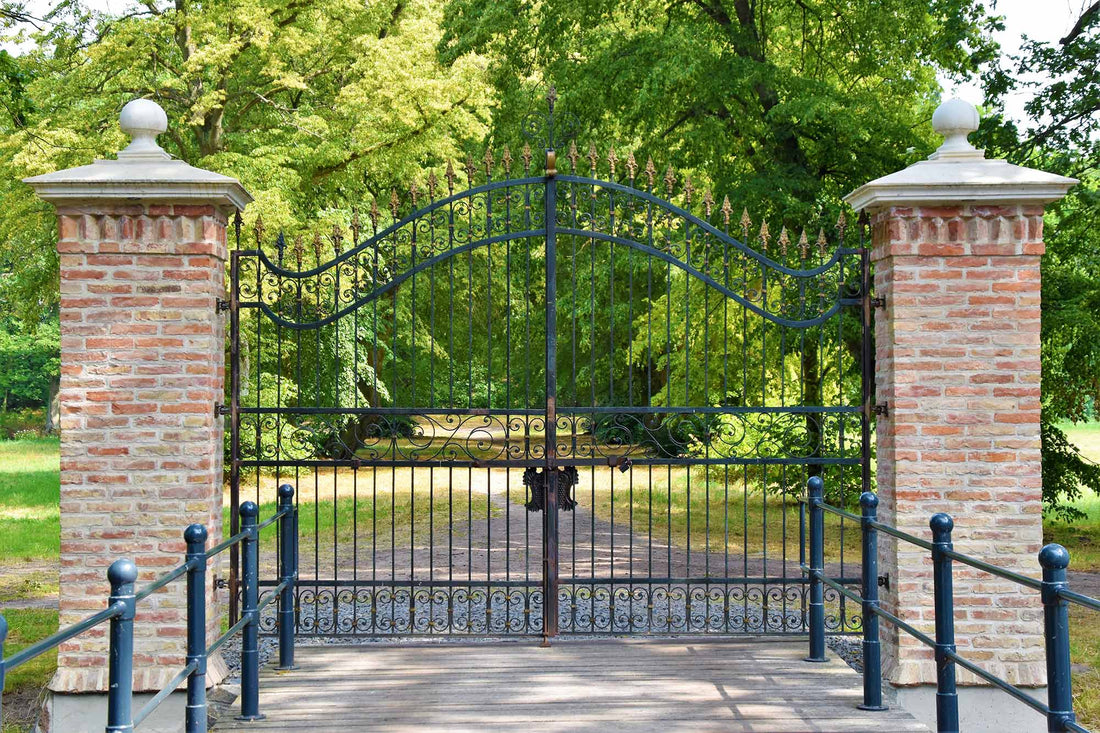‘I shall now describe to you, O Rāma, the seven states or planes of wisdom.
Knowing them you will not be caught in delusion.― Yoga Vasishta Book III. 1. 18
Each of these seven states of wisdom, which I have called the seven gateways of transformation, has a Sanskrit name. Many scholars and sages have commented on the nature and meaning of each stage. In fact, my husband wrote an entire book on the subject 7 Steps to Freedom.
But rather than give a full exposition on each of the seven gateways and why we should embark on them, I’ll just give a brief thumbnail of each stage to introduce a story that my husband wrote for me to include in my book Conscious Confidence: Use the Wisdom of Sanskrit to Find Clarity and Success.
1. Inspiration or Good Impulse
shubhechchā (शुभेच्छा)
We are inspired by the wisdom in a book, or in something someone says, and we experience a desire for that wisdom.
2. Application and True Enquiry
suvichāranā (सुविचारणा)
We now seek out knowledge to attain that wisdom. However, we still have our old habits, so we need to start creating something new. Both enquiry and application to some disciplined work is required to bring about transformation.
3. Assimilation and Refinement of the Mind
tanumānasā (तनुमानसा)
The mind becomes more refined by leaving behind its regular diet of limiting and negative thoughts and feelings, and the assimilation of new finer knowledge and habits. There is a growing feeling of lightness, efficiency and strength.
4. Illumination and a State of Clarity
sattvāpatī (सत्त्वापती)
Here we experience stability, strength, illumination and clarity, and fear falls away. This is a middle stage where the seeker partakes of the wisdom of the higher levels, but can still understand the issues and concerns of those enmeshed by ego and the cares of ordinary life. People at this stage are often called upon to formulate higher wisdom into a form that the world can understand.
5. Penetration with Insight and Detachment
asangsaktī (असंसक्ती)
At this level there is greater insight to see beyond the appearances of things. There is no conflict or disharmony, just love for the whole world as one family. This is where reason and love operate together in silence.
6. Dissolution and Non-Awareness of Separate Objects
पदार्थभावनी)
Here separation dissolves and we perceive everything as a single blissful unity. All personal effort has fallen away. There is complete surrender. The move to the final stage of turīya is said to be ‘by invitation’.
7. Completion in Full Realization of Unity
turīya (तुरीय)
We know ourselves to be pure spirit. The individual feeling of existence merges in pure universal being.
Here now are these same seven steps set out in story form. Enjoy.
The City of Seven Gates
One day a man, wanting freedom, heard that he would find it in the City of Seven Gates. He set out on the road, looking for that wonderful city.
After searching for a long time, he came to a fertile valley. In that valley was a beautiful city surrounded by seven walls, each pierced by a single gate. He had found the City of Seven Gates.
He approached the Gatekeeper at the First Gate and asked, “What must I do to pass through this Gate?”
“You have already fulfilled the first task,” said the Gatekeeper. “Having been told of the City of Seven Gates, you set out to find it. Succeeding in your quest is the test of the First Gate.”
The Seeker passed through the First Gate into the City.
Beside the Second Gate was a School teacher.
“Kind Sir,” the Seeker asked, “How may I pass through the Second Gate?”
Without a word, the Teacher pointed to a few loose piles of rubbish, some pots and pans and an old rug. Next to each were cleaning materials.
At first, the Seeker felt irritated. He wanted freedom and enlightenment, and he was being asked to perform menial tasks. However, he put his annoyance aside and half-heartedly began to work. By the time he had finished, his resistance had dropped away, he felt a sense of satisfaction and he was ready to do more. He turned to the Teacher who was smiling at him. The Second Gate had swung open unnoticed, and the Teacher was beckoning him to pass through.
At the Third Gate was a man with a sharp sword strapped to his waist.
“Tell me I pray,” the Seeker said bowing low, “what must I do to pass through the Third Gate?”
The Gatekeeper told him a story: “The grandmother of two starving children stole bread to feed them. The punishment for stealing is ten copper coins or ten days in gaol. The baker she stole from is also poor and his family depends on him selling his bread. The baker insists that the sentence be carried out as a warning to future thieves. To pass through the Third Gate you must render judgment in this case.”
The Seeker was perplexed. Should he be merciful to the grandmother, and therefore flout the law and ruin the baker; or should he deliver justice to the baker and punish a desperate grandmother.
He pondered this for some time. Then his mind cleared.
“Here is my judgment,” he said reaching into his own purse. “The fine must be paid. So here I make a gift of ten copper coins to the grandmother to pay the fine.”
“I also decree that every person who knew the grandchildren were starving, but did nothing, must pay a fine of half a copper coin to the grandmother so she can, in future pay the baker for her bread.”
The Gatekeeper nodded.
“It is the joining of head and heart, of reason and love that opens the Third Gate.”
The Seeker passed through the Third Gate.
When the Seeker arrived at the Fourth Gate, he saw that it stood open already. Instead of a single Gatekeeper, there were men and women with their heads cocked as if listening to sounds coming from the inner city. They wrote down what they heard, and messengers took those notes to the outer city.
“What goes on here?” the Seeker asked.
“Listen,” said one of the Scribes, who turned his head, as if listening to a sound carried on the breeze. “Can you hear it? Listen with your heart.”
The Seeker fell silent and listened. After a few moments he began to hear a wonderful sound, like music, full of peace and insight and truth. The Scribe smiled and nodded and gave the Seeker paper and pen.
“Translate what you have heard into the language of the outer city.”
The Seeker sat next to the other Scribes and he listened and wrote. He spent many happy days translating what he heard coming from the inner city into art, poetry and laws for those in the outer city, who wished to live a just and happy life.
Time passed and his hearing refined. A pathway opened within him until he no longer needed to listen with his ears. He began to hear the music and wisdom coming from his own heart.
One day he knew it was time to go. He handed his pen to another Seeker who had just arrived from the Third Gate. Then he turned and passed through the Fourth Gate.
At the Fifth Gate the Seeker found an empty chair.
He sat in the chair. Passers-by nodded and smiled at him. He watched people going about their business. Trees bent in the breeze, leaves fell to the ground. The Seeker sat quietly and watched all of this. Then a cover gently fell from his heart. Love poured out of him.
He saw each woman as his sister, his daughter, his mother, each man was his father, his brother, his son. All the children were his children. Everyone was part of one great family. His family. He sat for some time in that simple chair next to the wooden gate swimming in an ocean of love.
When the time was right, the Seeker arose from his chair and walked through the Fifth Gate.
Next to the Sixth Gate was a ladder. The Seeker climbed the ladder and reached a platform. On it stood a beautiful woman. On her finger sat a songbird, trilling its greeting to the morning sun.
The Seeker looked around. He saw everything - the woman, the bird, the rising sun, the city, everything shining in the golden light. Then he saw that the light shining off everything was a single Light. He felt the beauty of everything as a single Beauty. Understanding flooded into his heart as a single Wisdom. Everything he looked at, everything he heard, everything he felt was One.
The woman smiled and nodded.
He climbed down the ladder and stood before the Sixth Gate and waited. There was nothing to do, nothing to say.
How long did he stand there? A moment? An eternity? Was it important? Not to him.
Then, between one moment and the next, the Sixth Gate opened, and the Seeker felt the invitation to walk through.
When he approached the Seventh Gate he began to laugh.
The Seventh Gate was a perfect polished brass mirror. All the Seeker could see was himself. Etched into the mirror above his reflection were the words: “Behold the Gatekeeper.”
He bowed to his own reflection and stepped into the Seventh Gate.
This story is our story, and transformation begins for each of us at that first gateway when we are inspired by wisdom to begin our own journey.

